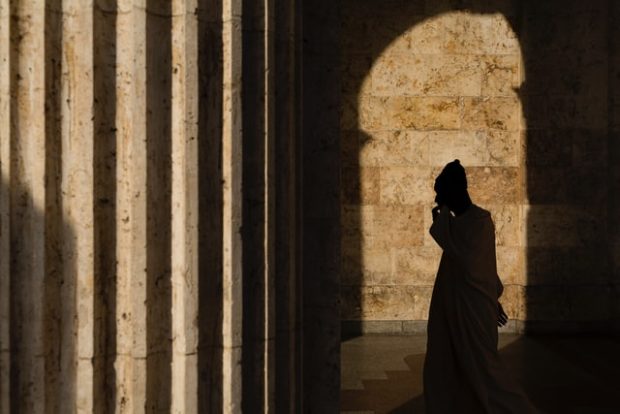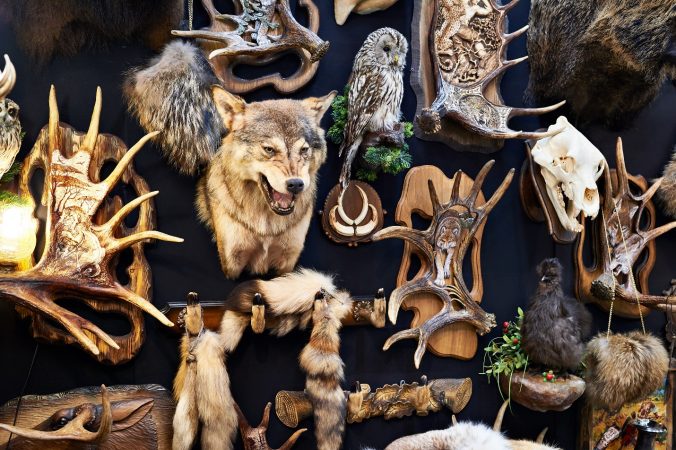You have no items in your cart. Want to get some nice things?
Go shopping
As Kaliyah stepped out through the back door and locked it behind her, a tail of memory brushed the back of her neck. The feeling was light, itchy, and so fragile she was afraid that, if she reached back for it, the memory would break into a thousand pieces.
She didn’t move. She stood in the alley, behind the house, white-knuckling the bag with the severed hand. She took a deep breath of the rotten air that clung to the condemned house on O Street. Not the house. It was their house. Her crew had seized it more than six weeks ago, which meant they’d won it, fair and holy square. But she felt a tug of unease at the idea of leaving the others: Could she trust Octavio and Marta alone, with the new girl?
Fuck. Kaliyah looked down at the yellowish plastic bag and regretted believing the new girl’s story: Bring this hand to Gates General, she’d said, and there will be a huge reward. The girl was telling a truth, Kaliyah believed. At least … as far as she knew it.
And … they did need money.
Kaliyah’s knees wobbled – right, left – before she said fuck it and turned toward the street. The memory brushed her neck a second time. She stopped until her mind loosened its grip on anxiety and let her reach back to hold the memory’s delicate edge. There, she found eleventh grade. Dr. Hassan was at the front of the classroom, hunched over, both hands pressed against his stomach. The room smelled faintly of vomit. He’d been high most days. Drunk the rest. Other kids sat in the back and talked, but Kaliyah would tell them to stay the fuck quiet. She’d loved Dr. Hassan’s “true crime” stories from tenth-century Baghdad, which he read off his phone in the gravelly voice of nightmares.
Kaliyah smiled at the memory, trying to hold its lacy edge as she turned to walk toward the bus stop.
AQ was worse today, and she tugged up her collar, holding it between her teeth so she could breathe through her jacket. As she walked, she tried to remember the name of one of Dr. Hassan’s old stories. He was a good man. She wished she could ask him, now, what he thought about this severed-hand business.
The memory shifted, and she heard the edge of Dr. Hassan’s voice reading them a story … abouta severed hand. Kaliyah scrolled through her phone as she walked. The story she found, al-Tanukhi’s “The Girl of al-Ramlah,” didn’t seem like the one she remembered. The screen wobbled as Kaliyah read the first few lines, and this new story threatened to overwrite the one in her memory. She stopped, unsure. If she read this new story, she might lose the older one forever.
But this story was in front of her. She read:
*
A Baghdadi man was standing at his mother’s grave in Ramlah, Syria. The grave, at the center of town, wasn’t far from the home of his mother’s third husband.
Naturally, the man was unhappy. He’d been estranged from his mother for decades, and he wasn’t sure why he’d come all this way. As the curtain of night fell, he stood at her gravesite. Before he could walk away, he needed to end some unfinished conversation. When the stars had brightened and the town went quiet, the man was still there, uncertain how to resolve what lay between them. His knees fluttered with exhaustion; the journey from Baghdad had been long and difficult. The only reason he was still awake was that he feared what might be slinking through the graveyard. Eventually, the man’s body grew too heavy for his knees to bear, and he sank down into the damp grass near his mother’s final bed. He sat, gripping his heavy sword, struggling to stay alert as he remembered his mother’s soft, beetling laughter.
He startled awake to find a shadow at his mother’s grave, humming softly as it dug up the soil. Was this a dream? Or was this a djinn taken animal form? A wolf, mad with disease, unafraid of humans? The creature stopped digging and rested on its haunches, panting.
By now, the man knew he wasn’t dreaming. His body shook with icy heat. With great difficulty, he stood – one leg, and then the other – and lifted his sword above his head. He stumbled toward the beast that dug in his mother’s grave and brought the sword down with all his strength. The beast gave a strange, howling yelp before it scrambled away, first on all fours, and then it rose, terrifyingly, onto two legs. It fled the graveyard.
Sleep was now cleared from the Baghdadi’s eyes. Overhead, clouds slid away, allowing moonlight to brighten his mother’s grave. Part of her shroud had been dug up, and a bit of old flesh. The man looked away. A long time passed before he knelt before his mother’s resting place, eyes closed as he pushed the dirt back over her corpse. It felt like burying his own body. His hand touched flesh, and he screamed.
The man covered his mouth as he heard his scream echo through the sleeping city. He looked down at the hand. It was soft, young. Its back was decorated with henna, and its pearly fingernails had been trimmed and buffed to perfect half-moons. The man was shaking badly now, thinking this must be … his mother’s? The creature had dug it up because … his mother had been growing younger? Instead of being past seventy, had she become younger than him?
Yes, he thought bitterly. She was just the sort of mother who would do that.
The Baghdadi man put the hand in his lap and kept his sword at the ready. Eventually, he must have slept, because when an old woman startled him awake, the world was light. The Baghdadi scrambled to his feet, and the hand dropped to the ground. The old woman looked at it. Then she looked at him, then back at the severed hand.
“What have you done?” she asked, her voice full of pity.
The man was so bereft and confused, he let the old woman grip his arm. She told him she was taking him straight to the town’s judge, its qadi. “It’s the only thing to do,” she told him, dropping the severed hand into a sack. He agreed.
The Baghdadi man was expecting a doddering old whitebeard to come out of the qadi’s house. Instead, after the old woman knocked, a jumpy young man hurried outside in long, clean, neatly pressed robes. This qadi took an immediate interest in the hand in the sack. As the Baghdadi told his story, the qadi’s eyes brightened even more.
“Interesting, interesting, interesting!” the qadi said, rubbing at the sparse hairs on his chin. “We’ll solve this mystery yet!”
*
A bus squealed into place on the platform. Kaliyah started to jump on, without looking, but then caught a glimpse of the notice: Next stop: Yoth and W. 7th. She looked down at her phone, confused. “They changed the routes,” a woman said, from behind her in line. “Where you going?”
Kaliyah glanced down at her wrinkly plastic bag as she backed away from the platform. She sniffed at the air, wondering if the woman could smell it. “Hospital,” Aliyah said, tersely. “Gates Gen.”
“Ohh.” The woman’s face changed, hardening into sympathy and annoyance. “You okay?”
Kaliyah gave a terse nod. She thought about making up some sad tale so the woman would feel obliged to help her. The woman already seemed braced for it, and Kaliyah almost felt angry enough to oblige. But no. She didn’t have the stomach for it.
“The 7C will be here in three minutes,” a man’s voice said. Kaliyah turned around, tightening her grip on the bag. She softened as she saw the rough, sweet-faced gentleman who reminded her, somehow, of Dr. Hassan.
Aliyah gave a polite nod before she looked back at her phone:
*
Five days later, the Baghdadi man was summoned from his lodgings, where the qadi had asked him to wait, as the case moved forward. When the Baghdadi arrived at the qadi’s office, he found the young man pacing with great excitement. “Come with me!” the qadi nearly shouted. “Let’s go let’s go let’s go!”
The two of them set off through town, the Baghdadi stumbling and half-jogging to keep up. A servant walked swiftly behind them, bearing a small wooden chest.
“What is it?” the Baghdadi asked, breathless.
The qadi grinned and shook his head, half-skipping along the road. “God willing, you’ll see! All will be revealed! Everything is as God wills it!”
Soon, they arrived at the gate of one of the richest houses in the city. What’s this, the Baghdadi tried to say, but the words went to dust in his throat. He thought about his elderly mother living in this strange city, along with a younger husband. Had his mother been involved in some dreadful magic? Did it involve the people who lived in this house?
A servant emerged, and the qadi bellowed and bullied until they were escorted into a diwan full of settees and pillows and luxurious wall-hangings. The qadi wouldn’t sit. Instead, he strolled around the room, hands behind his back, lips moving as though he were rehearsing a speech. The servant sat on the edge of a settee. The Baghdadi didn’t know what to do, and so remained standing.
Finally, a pot-bellied, turbaned, outraged-looking merchant burst in, bellowing, “What is it this time? Have you lost your mind, little Qadi? Have you come to shame my family?”
The qadi stopped pacing and snatched the chest from the servant, who looked startled and – for one brief moment – entirely lost. “Look upon this!” the qadi shouted back, as he opened the box with a flourish. The turbaned old man inched forward. He peered into the box, frowning.
“What’s that?” the pot-bellied man asked, his nose wrinkling. “Why are you showing me this? Have you forgotten who I am? Your father—”
“Yes, yes,” the qadi said. “My father, my father. In any case, this hand … this lovely, soft, perfumed hand … well! Bring me your only daughter, my Lord! With haste, if you please.”
The old man’s face reddened. “You dare bring this shame upon us, little Qadi? My daughter will not be fetched for men who are neither family nor husband.”
“Yes, yes,” the qadi said, dancing from foot to foot. “Go look yourself, then. Is your daughter perhaps missing a … hand?”
The man blanched. He looked into the box a second time before he left the room.
*
“This is the one,” the rough-and-sweet man said, gesturing toward an approaching bus. “Sorry about the hospital.”
The man nodded at Kaliyah’s bag, and she flinched, pulling it closer. Had he guessed what was inside? She shook herself. Of course not.
Kaliyah stepped on after the sympathetic-annoyed woman, who gave an apologetic look before she threw herself into a seat near the front, sighing as if she hadn’t taken the weight off her knees in a hundred years. Kaliyah found an empty seat near the back. She didn’t know what to do with the hand. She set the bag in her lap. She squeezed it, a little, just to make sure it was still a hand in there – that it hadn’t magically transformed into a sparrow, or a sandwich, or a lump of coal.
What kind of trap could she be walking into? Kaliyah’s whole life had been a series of traps: her stepfather’s arms; her dad’s sticky money; her mother’s angry neediness. Even justbeing good atthings was a trap, since it meant everyone pressured you to do things you hated. Only Dr. Hassan had told her to ignore the traps. Follow, he said, your own intuition.
After graduation, she didn’t apply to go abroad, like the other “smart” girls. Instead, she found a small group and built them up. They’d taken over a condemned house on O St. They’d built a tiny art-anarchic space. It was perfect, except for the lack of food or money. So, she’d thought, taking a man’s hand to the hospital could be an easy win. Or, she thought, she could be headed for a swarm of police.
Kaliyah looked at her phone. There was a message from Octavio: the new girl wanted to know, “Is the hand feeling okay?” Aliyah rolled her eyes and whispered “Never better” into the phone. She went back to the story:
*
When the door opened a second time, two women stepped in, followed by the turbaned, potbellied merchant, who seemed to have shrunk by several centimeters.
“Well, my good lady?” the qadi said, his voice squeaking with excitement. “Will you tell the truth, God protect us?”
The older woman looked at the qadi, her gaze flat and tired. “I will tell what I know, Qadi. Five nights ago, my daughter stumbled into my room in poor health, collapsing at the foot of my bed. When I examined her, I found blood spurting out of her arm in great, pulsing waves. I wanted to scream, but my daughter ordered me to remain quiet. She told me to put pressure on the wound, or she would surely die.
“I went to the door and called my maidservant, who came to help us bind the wound. Once the bleeding had stopped, and my daughter was resting, the maidservant and I got down on hands and knees to clean my daughter’s blood. Then we went outside and splashed water all around, so the wolves would not come looking for our wounds.”
The woman paused, breathing hard as she avoided her husband’s gaze. After a moment, she went on: “My husband knew nothing of this. In the morning, I told him that our daughter had developed sores on her beautiful left hand. The next day, I told my husband the sores were worsening. On the third day, my husband visited our daughter in her rooms. She moaned a great deal and kept her stump hidden. On the fourth, I told him I’d sent for a physician, who might need to amputate.”
The woman lifted her chin. “I did all this for my daughter’s dignity.”
The old merchant snorted, but he said nothing.
“Excellent, excellent!” The qadi was nodding, bending his knees and straightening up, as though getting ready for a run. “However, we might have guessed all that. What we really want to know is: Why was your daughter digging in a grave?”
Just then, the proud young woman stepped forward. Her face was pale, as though she had lost a great deal of red blood. But her features were sharp. Defiant. “Mother doesn’t know about that. For years now, the maidservant has covered for me on nights when I snuck out to the graveyard.
“Yes. During the day, I was an ordinary girl. I would chatter and sing and recite poetry like any other fool. I would listen to gossip, smile, be pleasant. But my ears were always open for news of who had been wrapped in a shroud, carried out to the graveyard, and lowered into a hole.
“When there was a fresh corpse, I would be overcome by shivers of excitement. A few nights after a new burial, I would strap on an iron claw, binding it to my right hand. Then I would creep into the graveyard on all fours, so that any passerby might think I was a dog, or a djinn, or a wolf. I would dig up the grave, yank out the shroud, and hurry home with my treasure. By now, I have a collection of more than three hundred.”
The qadi’s brow furrowed. “But what on earth do you need with all those shrouds?”
The young woman’s features stood out even more. “I have not yet decided, Qadi. But digging them up was a thrill like no other.” And then the young woman was silent.
The old merchant moaned from the shame of it all. “Oh God,” he said, hands pressed to his burning cheeks. “Oh God.” Just then, he looked up at the man from Baghdad. “And who exactly is this? Why have you brought a stranger to witness my mortification?”
“Ah yes!” the qadi said, clapping his hands together and nearly leaping into the air. “This excellent, wonderful, perfectly good man is the one who cut off your daughter’s hand!” The qadi’s arm swept out, as if to present the man from Baghdad, who flinched.
“Another stranger has seen my daughter’s shame.” The man moaned, and tears slipped out of his rheumy old eyes. “She’s ruined … we are all ruined.”
The proud young woman rolled her eyes, her eyelids fluttering.
“And yet I have a solution!” the young qadi said, swishing his robes with glee. “Mr. Baghdadi, would you like to marry this lovely young woman, who is from an excellent family, and who could settle you, financially, for life?”
The man from Baghdad opened his mouth, but he could say nothing.
“What do you think?” The qadi turned to the turbaned old man, who agreed. He turned back to the man from Baghdad, who gave a slow, stunned nod.
*
“This seat taken?” a sweaty boy asked, pointing at the one beside Kaliyah. The yellow plastic bag had slipped partway off her lap, onto the seat. Kaliyah frowned and quickly bundled the plastic-wrapped hand back onto her legs, fluffing out the edges to disguise its shape. She stared out the window as the sour-smelling White boy squeezed in beside her.
“Where you going?” the boy asked. “You got pretty eyes, you know?”
Kaliyah grimaced. She stared down at her phone, but she couldn’t concentrate on the story as the boy rambled on about some new job he’d gotten, chef’s assistant, it paid well, yeah, and he was a good cook, too. “You want to pass me your num-ber?” He gave a hiccupy laugh. Kaliyah kept staring down at her phone, as if she were engrossed in her story.
“You speak English?” the boy asked, and Kaliyah struggled not to react. The boy had a black hole in his chest, and she felt herself being drawn into it. But she pressed her feet down and refused. Dr. Hassan had always told her: Don’t get sucked into other people’s black holes. You’ve got to be you.
*
The man from Baghdad adored his proud, clever wife, but she did not feel the same about him. When he looked at her, he saw the will of God. It was God who had brought him the news of his mother’s death, and God who had made him hurry to her grave beneath the star-bright sky. It was God who had joined him to this beautiful creature, in her beautiful home, with luxuries he could never have believed.
But when the clever woman looked at the Baghdadi, she didn’t see stars, or the moon, or the will of God. She saw a man who had sliced off her hand.
He tried to be kind to his clever wife, even though the things she wanted were outrageous. She wanted to dress up as a man and go out at night, to coffeeshops and literary diwans. She wanted to read the works of Ibn al-Hajjaj and to write her own naughty verse. She wanted to steal small, inconsequential objects from the rich and the dead. Still, she was his fate. And she was very clever. So he agreed to all of her odd requests.
Until one night the Baghdadi man woke, confused, to find a blade pressed to his throat. When he blinked the sleepy confusion out of his eyes, he found his wife straddling his chest, a razor in her fist, her expression blank. When he tried to move his arms and legs, he found they were bound.
“I’ll kill you,” she said, in that matter-of-fact voice he so loved.
The Baghdadi man shivered, wondering if this was some new sort of foreplay. He gave her a small, uncertain smile. “All right, my love.”
“Either divorce me, or I’ll kill you.”
“I love you,” he said, trying to sit up.
She dug the razor into his neck.
*
Kaliyah looked up and found the sweaty White boy perched beside her, reading over her shoulder. The bus squeaked to an unexpected stop, and Kaliyah looked up to see two police stepping on. “Routine inspection,” one said. “Everyone off.”
The boy looked at Kaliyah, and she understood his expression of hate and desire. She’d seen the same look practically tattooed on her stepfather’s face. She waited for the White boy to get off first. Then it was just her and the severed hand. Should she walk past the officers, brazenly carrying pound of human flesh? Or should she leave it here, covered in her DNA? The officers were looking from seat to seat, doing a sweep for bombs. “Miss!” one of them called to her. “Everyone off!” Kaliyah pressed the bag down under the seat and got up. She walked past the officers with her head high. She would get off and run away. She’d go north, like everyone said Dr. Hassan had done, after he’d been fired. Maybe she’d even find him up there.
But when she got off the bus, there was no exit. Two more bored-looking, helmeted officers stood there, pointing everyone toward a cordon. “If you make a move, we make a move,” one of the officers said. “Got it?”
Kaliyah stood in the middle of the group, inventing her lines.
–Yes, Officer, I found the bag on the seat when I got on.
–Yes, I put it on the floor because it isn’t mine.
–No, I had nothing to do with any severed hand. How ridiculous!
“I didn’t get to the end.”
It was the sweaty White boy talking. It took Kaliyah a moment to realize he meant the end of her story. She grimaced.
“I won’t bother you,” he said. “I just want to see if she kills him.”
Kaliyah stood there in the cold. She remembered the end – the Baghdadi agreed to a divorce, wrote out the paper, and fled al-Ramlah forever. Or at least that’s what happened in the version Dr. Hassan had read them. It was one of the last stories he’d read before they fired him. Most people thought he’d been fired for being high on the job. But Kaliyah knew it was because, during the parent-teacher meetings, he’d punched Kaliyah’s stepfather in the face.
“So does she kill him?” the White boy asked. Kaliyah didn’t react. What she wanted to know was: What happened to the woman’s damned hand? Had they given it back to her? Had she buried it in the wooden box? And did she ever do anything with those three hundred shrouds?
“All clear,” the first officer said, stepping off the bus. “Everyone back on.” The second officer also stepped off, and people shoved and stepped on each other as they hurried to get back to their seats. Someone else would sit in Kaliyah’s seat now. They’d find the hand.
“At least tell me what the story’s called, bitch,” the sweaty White boy whined. “So I can find it.”
Kaliyah was uncertain. There was a man in the hospital, waiting to have his hand reattached. Maybe he was a good man. Maybe he was as sweet as Dr. Hassan. She took a step sideways, waiting to see if anyone shouted for the police. “Aren’t you getting back on?” the White boy asked. Kaliyah didn’t answer, and the White boy leapt on before the bus doors closed. A sickening shame snaked through her body – yes, of course, she should’ve taken that hand. As the bus drove off, a deep, embarrassed regret swam through her. It swallowed her story, digesting it, making it new.

About M Lynx Qualey
M Lynx Qualey is founding editor of the translation-community website ArabLit (www.arablit.org), which won a 2017 London Book Fair prize. The project has since expanded to ArabKidLitNow!, the ArabLit Story Prize, and the ArabLit Quarterly magazine. MLQ is also co-host of the popular BULAQ podcast, and she writes regularly for a variety of publications. Her translation Sonia Nimr's Wondrous Journeys in Amazing Lands is forthcoming from Interlink this fall.
- Web |
- More Posts(1)




